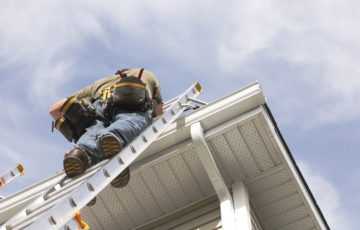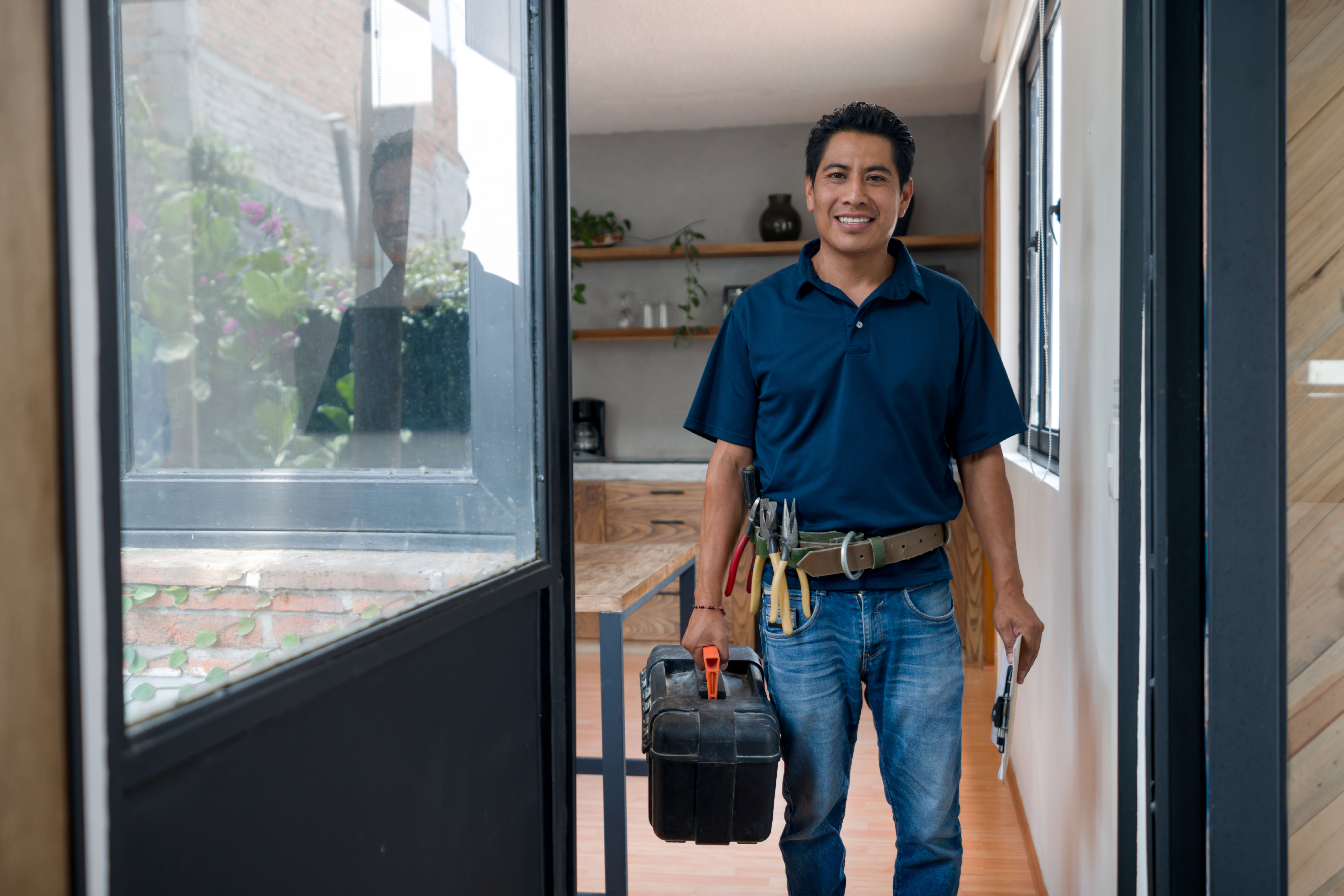If you run a small roofing business, you know that you’ve got to make every dollar count. Making the most of your tax return is a handy way to get bang for your buck on things spent on your business.
Yet over two-thirds of Aussie small business owners don’t understand all parts of their tax return, making it highly likely that many are missing out on claiming deductions.
If you fall into this category, you can call on one of the many professionals out there, like an accountant or tax adviser, to help you successfully navigate this stressful process.
In the meantime, you can brush up on some of the essential with this blog, which is designed to provide roofers with some tips and tricks to help you and your roofing business get a general understanding of tax for small business.
Come June, while all the other roofers will be off-site scrambling through receipts and frantically pushing calculators, you’ll be armed with the knowledge that will keep you calm and collected when the tax man comes knocking.
- Understand the fundamentals
Tax is a complicated subject for many small business owners. And while you may be part of the many Australians that would rather be stuck in traffic than lodge their tax return, understanding the basics will help you get through it.
We get it. You didn’t become a roofer to be sweating over receipts but skirting your responsibility could not only cost you money to put back into your business but land you in trouble with the Australian Taxation Office (ATO).
So, here’s a quick explanation of the fundamentals so you can get your ducks in a row.
Your annual business tax return allows you to claim a deduction for most work-related expenses incurred while running your roofing business.
Your business’s taxable income determines the amount of tax you must pay. This formula is used by the Australian Taxation Office to calculate your taxable income.
Assessable Income – Tax Deductions = Taxable Income
The term ‘assessable income’ simply means money that your business earns before tax. That is money earned in the general day-to-day operations of your business as well as any money you get through other investments under your business.
For each year that your business is in operation, you must file an income tax return – even if you don’t anticipate owing tax.
Of course, tax is anything but simple and it will largely depend on your situation. If you need any specific advice on this subject, contact a financial adviser or a tax expert such as Pop Business.
- Understand what you can and can’t deduct
Now that you’ve got the basics down pat, you can start thinking about what you can and can’t deduct. There are many costs associated with running a small roofing business and here are a few of the most common:
Your Tools and Equipment
If your small business turns over less than $2 million annually, you can claim up to 100% of the total cost of your tools under $20,000, according to the ATO.
Any roofing equipment under $300 bought in the same financial year are immediately deductible if you keep your proof of purchase. For more information on the thresholds and limitations, click here.
Vehicle Deductions
Are you often travelling from one site to another? Your motor vehicle expenses are deductible. But just remember that in order to maximise your return, keep all receipts and consider having a logbook of all work-related travel. The following are some of the deductions you can claim for your work vehicle:
- Fuel
- Parking fees
- Repairs
- Oil
- Insurance
- Servicing
- Registration
- Others
Personal Protective Equipment and other Safety Gear
As a roofer, you will spend a lot of time outside. You will also be working with potentially dangerous tools and at heights. This makes buying PPE and other safety gear an absolute necessity for safely running your business.
Fortunately, you can deduct a lot of these potentially expensive but essential costs, including:
- Sunscreen
- Masks & Respirators
- Work Boots
- Work Clothes
- Safety Glasses and Safety Goggles
- Head Protection & Hard Hats
- Hearing Protection
- Gloves
- Knee Pads
Seeing as your work clothes will get filthy crawling up and down tiles and carrying dirty materials, you can also deduct some of your laundry expenses. However, with recent changes to regulations, it’s best to read up on this “topic here.
Phone and Internet
Do you use a work phone to conduct business? You can claim for any work-related calls that you make throughout the financial year. The same goes for your Internet use, especially if you do some admin work at home.
Non-deductable expenses
Of course, while there are many things to deduct, there are also many things that are non-deductible.
Here are some common examples of things you can’t claim:
- Entertainment expenses
- Traffic fines
- Private or domestic expenses, such as childcare fees or clothes for your family
- Expenses relating to earning income that is not assessable, such as money you make from a hobby
- The GST component of a purchase if you can claim it as a GST credit on your business activity statement.
The general rule of thumb is that the expenses must directly relate to earning your income and be for your business rather than for private use. To help keep track of your deductions, consider downloading the ATO’s myDeductions app.
- Ensure you keep your records
While there’s a long list of what you can deduct, it’s not going to be worth much if you can’t prove it.
The ATO needs small businesses to keep records in order to substantiate their claim.
Under tax law, your records must explain all transactions and be:
- In writing, either on paper or electronically.
- In English, or in a form that can be readily accessed and converted into English.
- Kept for five years (although some records need to be kept longer).
Tax audits are another important reason to keep track of your records. A tax audit can come out of nowhere and be quite costly, even if you’re only suspected of wrongfully claiming something.
You may also have to deal with the consequences of the interruption to your business that is often involved when being investigated.
This is where Tax Audit insurance can come in handy, as it covers a business for costs if the ATO selects it for auditing. A type of roofers insurance, the policy covers the costs of accountants and other professional fees incurred during an audit.
- Review other risks while you’re at it
Since you are sorting out the admin side of your roofing business, it might be a good time to review the protections from the risks you face.
Public Liability cover* is an important type of insurance for roofers as it covers you if a third party claims that your negligent business activities caused them injury or property damage.
You face many risks as a roofer, and it’s important you protect your small business by putting safeguards in place.
Click here for a detailed explanation of the types of roofers insurance available and what risks you’ll be covered from.
The bottom line
Many tradie businesses fear the end of the financial year, which can lead to missed deductions. Others might not be aware of their obligations and could face audits.
It doesn’t have to be this way. A basic understanding of the tax benefits and risks is essential for your small roofing business to succeed in Australia.
This information is general only and does not take into account your objectives, financial situation or needs. It should not be relied upon as advice. As with any insurance, cover will be subject to the terms, conditions and exclusions contained in the policy wording.© 2022 BizCover Pty Limited, Public Liability Australia is a business name of BizCover Pty Ltd (ABN 68 127 707 975; AFSL 501769)



